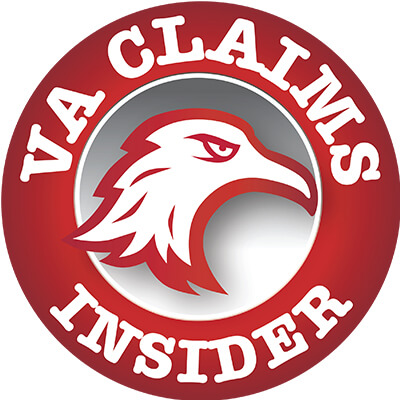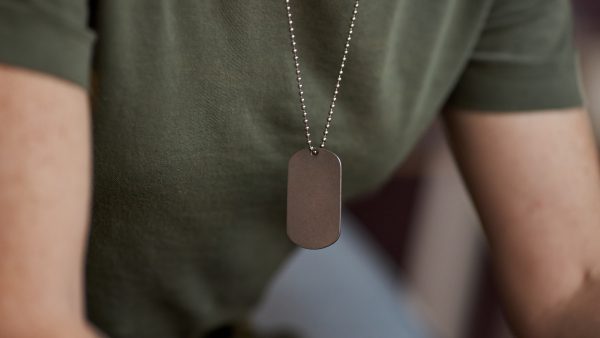Looking for Expert-Level VA Claim Answers?📱Call Us Now! 737-295-2226
In this ultimate veteran’s guide, we’ll walk through the process of filing a VA claim for bruxism secondary to PTSD.
Many veterans with PTSD grind their teeth, either while sleeping or awake (or both). Grinding your teeth may seem like a harmless habit, but it’s actually connected to a variety of underlying conditions that can negatively impact health.
Bruxism secondary to PTSD represents a potential increase in VA disability rating. Bruxism can also be established as secondary to other service-connected disabilities.

Service-Connecting Teeth Grinding, TMJ, and PTSD
Veterans cannot claim bruxism as a stand-alone secondary disability. However, it can be secondary to PTSD, or can be a symptom (or cause) of depression or TMJ disorder. Read on to find out more about the condition and how bruxism can be treated, as well as claimed as a disability to increase your benefits.
What Exactly Is Bruxism?
Bruxism is the medical term for a repetitive movement disorder in which an individual consciously or unconsciously grinds or gnashes teeth through the clenching of jaw muscles, sometimes leading to occlusal trauma.
Bruxism may be caused by a combination of physical, psychological and genetic factors. Awake bruxism may be due to anxiety, stress, anger, frustration or tension. For some veterans, it’s a coping mechanism, or can become a habit when trying to focus or concentrate.
Some medications can make veterans more vulnerable to bruxism. In that case, a change in prescription may be enough to resolve it. On the other hand, those with underlying primary conditions need appropriate care and treatment to mitigate the effects of bruxism.
Bruxism treatment can include:
- Mouth guards that protect against damage and reduce discomfort.
- Meditation, deep breathing and other practices that relieve stress and anxiety.
- Psychotherapy to manage and treat PTSD, depression, or other underlying emotional causes.
Self-managed care can also include listening to music, taking a warm bath, exercising, avoiding stimulating substances, and adopting healthy sleep practices.
As veterans pursue treatment for this condition, they can also pursue disability benefits if the bruxism is a secondary service-connected condition.

Beyond Bruxism Secondary to PTSD: What Other Conditions Can Be Claimed?
Bruxism, PTSD, and Associated Conditions
Post-traumatic stress disorder (PTSD) shares links with many other health conditions, including hypertension and heart disease, sleep apnea, depression and anxiety, temporomandibular joint (TMJ) syndrome, and more. Veterans should be aware of these associations, because some of these conditions may provide an opportunity to be evaluated on a secondary basis as a symptom of another service-connected disability.
PTSD is the 6th most-rated disability among veterans, and since bruxism secondary to PTSD is common, it may qualify as a service-connected disability, especially if it’s causing TMJ or other severe damage or pain.
Temporomandibular Joint (TMJ) Disorder
The temporomandibular joint is a sliding hinge that connects your jawbone and skull. Temporomandibular joint (TMJ) syndrome is a disorder of the jaw muscles and nerves caused by injury or inflammation to the temporomandibular joint.
A June 2014 study showed that veterans with PTSD have higher prevalence of TMJ signs and symptoms vs. other groups, and significantly poorer TMJ functional status than veterans without PTSD.
Veterans with TMJ disorder may experience debilitating neck or jaw pain, depression, malnutrition, or even eating disorders as a result of their pain.
The good news is that for many patients, effective pain management of TMJ disorder can reduce the discomfort. For most patients, non-surgical treatments and self-care can provide continuous relief. Surgery may be necessary in extreme cases.

Bruxism and Sleep Disorders
Nighttime grinding is frequently associated with sleep disorders like sleep apnea and snoring. Sleep apnea literally means you stop breathing at multiple intervals during your sleep, and snoring is a common symptom.
Veterans are four times as likely to have obstructive sleep apnea as the general population. Sleep apnea results in very poor sleep quality, which can in turn trigger or worsen many other conditions (from depression and anxiety to obesity). Poor sleep makes it difficult to heal from injuries and illness.
If a veteran has a service-connected disability that caused the sleep apnea, the sleep apnea can also be evaluated as a secondary disability.

How to Claim Bruxism Secondary to PTSD
Service Connection for Bruxism secondary to PTSD
Many veterans experience bruxism (and sometimes TMJ disorder as well) as a result of conditions related to their service. Veterans can establish a disability claim for TMJ disorder and/or bruxism to qualify for benefits.
While TMJ can be evaluated as either a primary or secondary service connection, bruxism can only be evaluated secondary to a primary service-connected disability. Secondary service connection requires that a veteran has a primary service-connected condition that causes or aggravates a secondary condition. It’s therefore important that you file a disability claim for bruxism correctly, or it will be denied, and you won’t get the benefits you deserve.
Before qualifying and receiving VA disability benefits for bruxism secondary to PTSD (and/or TMJ), you must establish a service connection to the disorder. Establishing a service connection to the disorder can be done through military medical records, new medical diagnoses after service from qualified professionals, and/or buddy letters. In the case of sleep bruxism, a spouse’s validation can also be helpful since you yourself might be unaware of the condition.
For a direct service connection (in the case of TMJ), veterans must demonstrate to the VA:
- A current diagnosis;
- An in-service event, injury, or illness; and
- A medical nexus linking the current diagnosis to the in-service event.
A doctor must also state that the TMJ is “at least as likely as not” resulting from the veteran’s service.
For secondary service connection, similar to direct service connection, the veteran will need a current diagnosis and medical evidence supporting the link between the condition and their service-connected PTSD.
For bruxism, doctor reports must show the medical nexus between your bruxism and an already established direct service-connected condition (such as PTSD, TMJ, or mood disorder). If an exam only diagnoses bruxism but doesn’t offer a bruxism etiology (identifying origin or cause), return to the doctor and ask to have etiology evaluated to determine if the bruxism is secondary to another condition.
Veterans are often missing key documents from credible experts in their disability claims (and may be unaware of all their potentially valid claims or the right ways to file a secondary service-connected disability).
If you want to learn more about how to increase your VA disability rating and avoid painful claim denials, or if you believe you’re entitled to a VA rating increase, watch this step-by-step video tutorial for how to file for a VA disability increase online.
How to File a VA Claim on the NEW VA.gov Website (Step-By-Step Tutorial!)
File a Claim for Bruxism Secondary to PTSD
Veterans should never overlook the symptoms of bruxism. Veterans are vulnerable to bruxism and when properly documented, this is a valid claim that can improve your disability rating.
The next time you see a doctor, let him or her know that you grind or clench your teeth. Get a diagnosis and pursue treatment. You may be referred to a dentist who can help you protect your teeth from damage and prevent or improve other health conditions associated with bruxism.
If you believe the source of your bruxism is due to a traumatic event or incident, you can file a claim for VA benefits. You can do this even if previous claims have been rejected.
At VA Claims Insider, we help fellow veterans get the VA rating increase you deserve by law.
- FOR veterans, BY veterans! We’re the largest community of Veterans Helping Veterans Worldwide™
- 25,000+ disabled veterans have been served in our Elite membership program since 2016
- 500,000+ veterans per month access our free/paid educational resources
- We employ more than 150 veterans, military spouses, and veteran advocates around the world
- 4.7/5.0 Google Reviews rating across 1,300+ total reviews
- VA disability benefits secured for veterans in all 50 states and 47 countries globally
If you’re ready to secure the VA disability claim rating and benefits you’ve earned for your honorable service to our nation, you can click the button below now to start our FREE 3-step intake process. You’ll hear from a member of our team within minutes!

About VA Claims Insider
VA Claims Insider is an education-based coaching/consulting company. We’re here for disabled veterans exploring eligibility for increased VA disability benefits and who wish to learn more about that process. We also connect veterans with independent medical professionals in our referral network for medical examinations, disability evaluations, and credible independent medical opinions and nexus statements (medical nexus letters) for a wide range of disability conditions.




